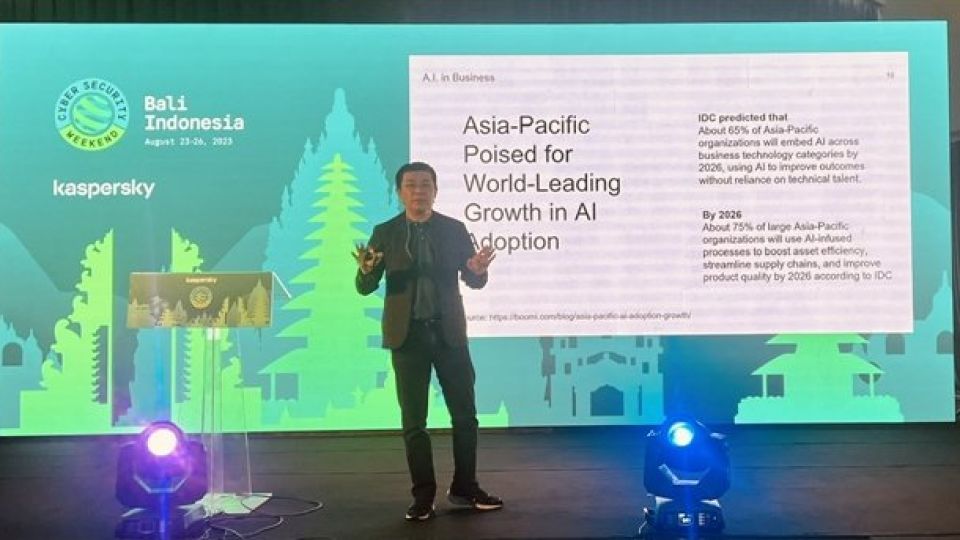September 6, 2023
BALI — Experts have called on the Asia-Pacific region to embrace artificial intelligence to combat cyber threats.
Speaking at a conference in Bali, Indonesia, at the end of last month, Adrian Hia, managing director for Asia Pacific, Kaspersky, a global cybersecurity firm, said: “AI has emerged as a powerful tool in the field of cybersecurity and beyond.
“The Asia-Pacific region is at the forefront of the AI revolution.”
Several research studies have predicted that the Asia-Pacific region will be the fastest-growing market for AI globally.
A report by Allied Market Research has forecast a compounded annual growth rate of 41 per cent for the region by 2030, higher than the global rate of 38 per cent.
According to a recent report by US-based market intelligence firm International Data Corporation (IDC), AI spending in the region is expected to double to US$18.6 billion by 2026.
Enterprises in the region are also set to embed AI across various business technology categories within the next three years to boost efficiencies and reduce dependency on technical skills.
China, Australia and India are the current leaders in AI spending across the region, with more countries expected to follow suit, according to the report.
According to a recent report by IDC, some 65 per cent of Asia-Pacific organisations will embed AI across business technology categories by 2026, using AI to improve outcomes without reliance on technical talent.
About 75 per cent of large Asia-Pacific organisations will use AI-infused processes to boost asset efficiency, streamline supply chains and improve product quality by 2026, it said.
While the region’s potential for growth in AI is significant, organisations must develop secure roadmaps to ensure the adoption of AI while prioritising cybersecurity, he added.
Cyber threats
Noushin Shabab, senior security researcher for the Asia Pacific Global Research and Analysis Team, said while AI had proven to be a powerful tool in various fields, including cybersecurity, it could also be exploited by cybercriminals for advanced persistent threat (APT) attacks.
“AI can assist cybercriminals in various stages of a sophisticated cyberattack, from reconnaissance to data exfiltration.”
The increasing use of AI by cybercriminals poses a significant challenge as they utilise machine learning and AI to develop APT attacks, she said.
To defend against AI-assisted APT attacks, she recommended implementing advanced security solutions that monitor user and system behaviours.
“Regularly updating software, providing employees training in cybersecurity best practices, and enforcing multi-factor authentication for critical systems and applications are also important steps.”
According to a Kaspersky report, Việt Nam suffered from the third highest incidence of cyberattacks in Southeast Asia last year after only Indonesia and Thailand.
The threats included online scams and cryptocurrency thefts.
The company detects an average of 400,000 new malicious attacks in the region every day.
The conference was organised by Kaspersky.
The Russian firm, founded in 1997, has signed agreements with various countries in the region, including Việt Nam, to help protect against cyber threats. — VNS


